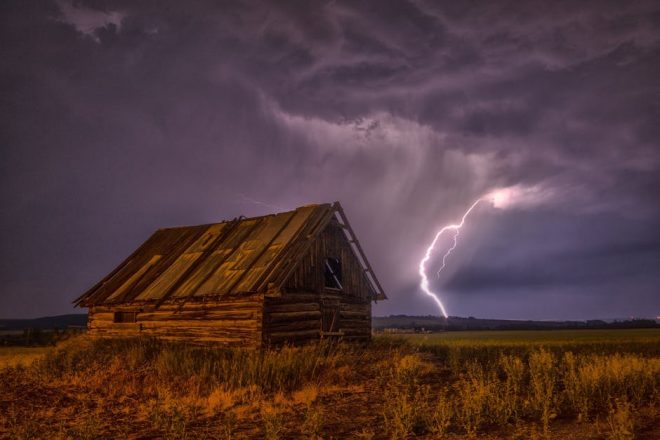The browser you are using is not supported. Please consider using a modern browser.

How to Protect Your Home from a Storm

Love them or hate them, it’s thunderstorm season. Whether you are the type that goes out on the deck to watch them roll in or if you immediately take shelter in the basement, there are a few things you should do beforehand to protect your home. Taking these precautionary measures can save your electronics and, more importantly, keep your family save.
Time to Unplug
If you have a thunderstorm warning in your area or see lightning near your home you should start thinking about how to protect yourself and your electronics. If lightning strikes near your home, the power surge of electricity can fry your TV, computer, lights, internet and more. A power surge protector can help but they can’t protect against all electricity surges and if lightning strikes close enough, it can still jump the surge protector. The best way to protect your electronics is to unplug them from the how outlet until the storm passes.
Install a Lightning Rod
If you live in a rural area that has frequent storms you may want to get a lightning rod installed. Lightning rods can protect your home from fire that can happen from a direct lightning strike. They do not increase or decrease your chance of being struck by lightning, they only provide a direct path for the electricity from the lightning to make it to the ground harmlessly.
Stay Away from Conductors
After unplugging what you can, try to stay away from touching or being near electricity conductors connected to your home. Things like hardwired telephones, plumbing, electrical appliances and metal objects can all conduct electricity and electrocute you if you are touching or near them when lightning strikes. Avoid taking showers, washing your hands, using a hard line telephone and touching metal window frames when there is lightning in the area.
Even though lightning strikes are rare, they can cause a lot of damage if you are not prepared. By protecting yourself and your home you can save yourself thousand in potential damages by taking a few easy precautionary measures. If you live in a rural area, you may want to invest in a generator to keep essential appliances running while the electricity company works to restore power.
Find a Reputable Contractor
When mother nature does strike, finding a reputable contractor for your home repair is critical to prevent any further setbacks. Make sure you research customer reviews and request detailed time and cost estimates prior to agreeing to start any work. There are also several helpful blogs that educate homeowners on pitfalls to avoid when hiring a contractor.
Remember that Mother Nature, while beautiful, can be fierce and powerful and by respecting that power we can protect ourselves and our homes.
